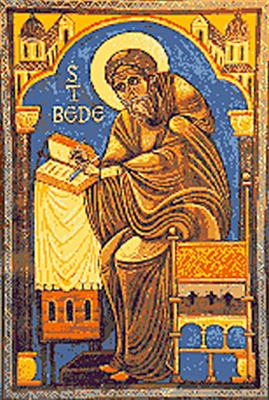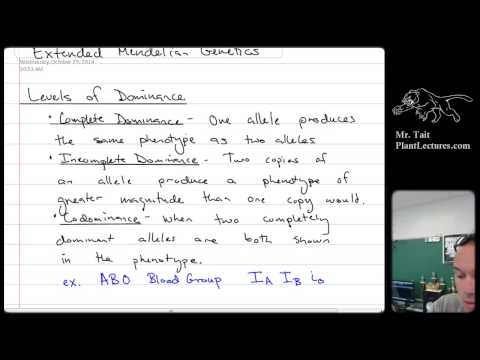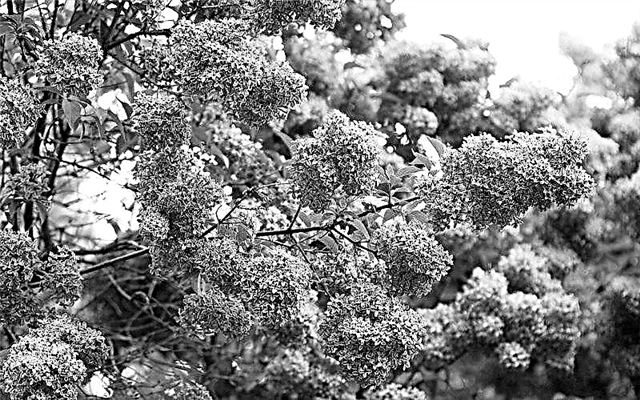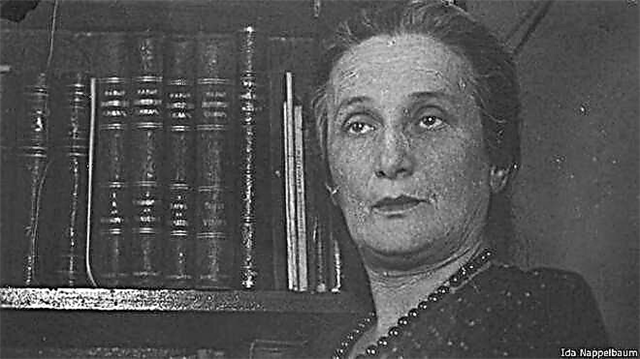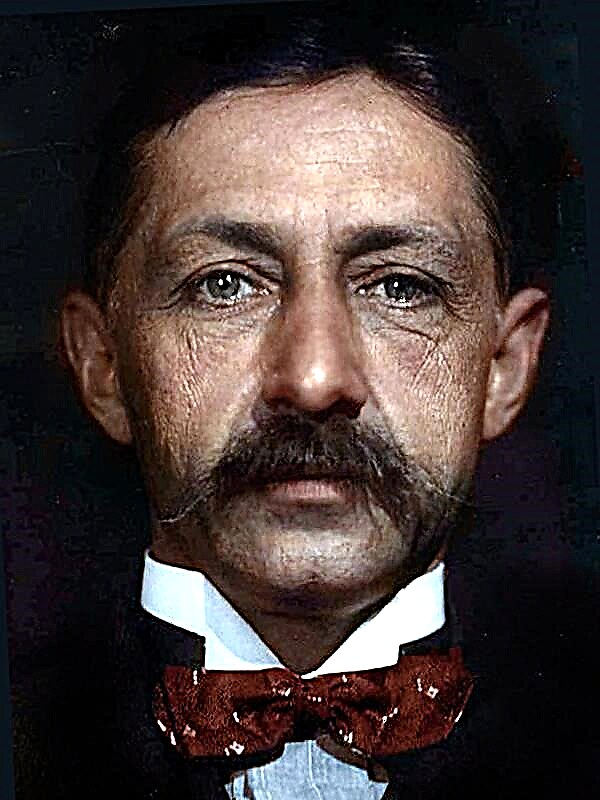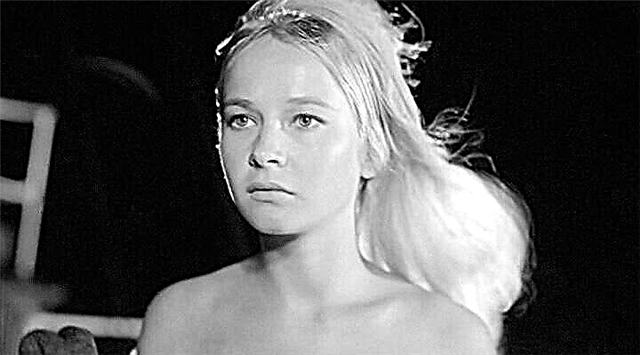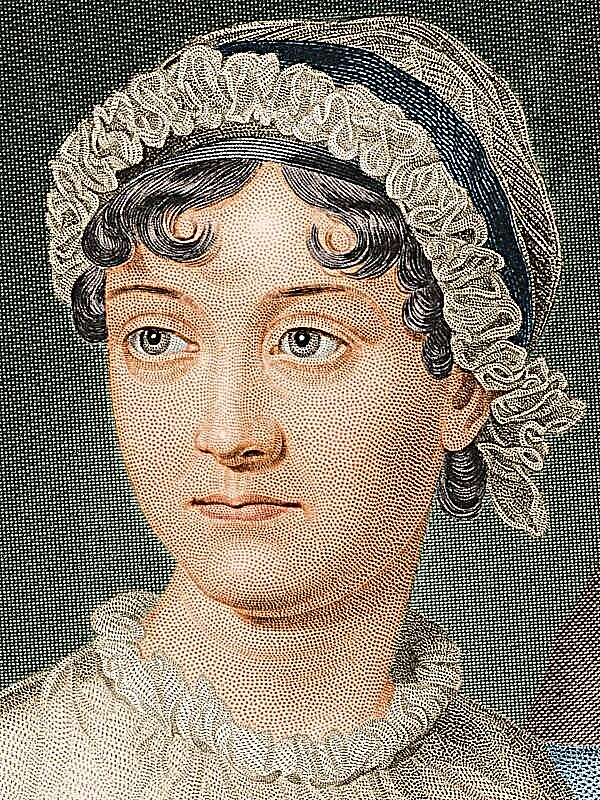Death of the gods. Julian the Apostate
Cappadocia To do this, he is going to kill two children - cousins of the current Constantinople emperor Constantius. Constantius is the son of Constantine the Great, who began his reign with the murder of many of his relatives, including his uncle, father Julian and Gall. Condemned, together with a detachment of legionnaires, burst into the palace, where disgraced young men are kept, but their teacher Mardoniy shows the rioters a certain edict (actually long overdue), which scares off the killers. Those are leaving. Young people are engaged in the study of theology under the guidance of Eutropius. Julian secretly reads Plato, visits the cave of the god Pan. In a Christian church, a young man feels uncomfortable. After the service, he enters the neighboring temple of Aphrodite, where he meets with the priest Olympiador and his two daughters - Amaryllis and Psyche. Rapprochement with Amaryllis does not work, she is indifferent to his gift - a model of trireme made by him. Displeased, the young man leaves. However, the girl returns, encourages him. Julian spends the night in the temple of Aphrodite, where he vows to love the goddess forever.
The next scene takes place in Antioch. Two strangers first eavesdrop on people's conversations, then watch the performance of stray artists. One gymnast so excites a young man that he immediately buys it from the owner and drags him to an empty Priapus temple with him. There he accidentally kills one of the sacred geese, a stranger is brought to trial, they tear off a fake beard. It turns out that this is Caesar Gall. Six years have passed since the beginning of the story, the emperor Constantius, to protect himself, made Galla co-ruler.
Julian wanders around Asia Minor at this time, talking with various philosophers and magicians, including the authoritative neo-Platonist Jamvlik, who sets out his ideas about God to him. A teacher and student watch how Christians smash pagan churches. Then Julian visits the sorcerer Maxim of Ephesus, with the help of some cunning devices evoking the young man's vision, in which he renounces Christ in the name of the Great Angel, Evil. Maxim teaches Julian that God and the Devil are one. Julian and Maxim ascend to a high tower, from where the philosopher shows the student the world below and offers to rebel and become Caesar himself.
Then Julian goes to his brother, who understands that Constantius will soon order to kill him. Indeed, soon Gallus was expelled from Constantinople, and the very Scudilo was taking him. With the "Caesar" mistreated, finally executed him. Julian spends time in Athens. Here he meets with the exiled poet Publius, who shows him "Artemis" - a beautiful girl with the body of a goddess. A month later, Julian and Publius are at a feast with Senator Hortense. That girl is his pupil, her name is Arsinoe. Julian gets acquainted with her, it turns out that both of them hate Christianity. Julian admits that he must be hypocritical in order to survive. Young people form an alliance aimed at reviving Olympic paganism. After spending the night together, Julian leaves for Constantinople. Constantius graciously accepts Julian, who hates him. Just at this time, the church cathedral is passing, where the Orthodox clash with the Arians. The emperor supports the latter. The cathedral ends with a scandal. Julian gloatingly watches the biting of Christians. Emperor Constantius, meanwhile, makes Julian a co-ruler in return for the murdered Gall.
Arsinoe moves to Rome. Together with her sister Mirra and one of her fans, centurion Anatoly, the girl visits the Roman catacombs, where the secret church is located. Here the Orthodox conduct their services. The legionnaires of the Arian emperor burst into the caves and disperse the assembly. Young people hardly manage to hide from their pursuers.
The next scene takes place in the Rhine forest. Two laggard soldiers from Julian’s army — Aragarius and Strombique — are catching up with their legion. Caesar Julian wins a brilliant victory over the Gaul army.
Julian sends an Arsine letter in which she reminds her of the union that was once concluded. The girl at this time dies sister - the meek Christian Mirra.
The young caesar is resting from the war in Paris-Lutetia. Here is also the wife of Julian - the fanatical Christian Elena imposed on him by the emperor. She considers her husband to be the devil, not allowing him to come to her. Julian out of hatred of Christianity is trying to take her by force.
The envious Constantius sends to Julian an official authorized to withdraw the best troops to the south. Soldiers rebel against such a decision; rebels ask Julian to be their emperor. After some hesitation, Julian agrees. His wife, Elena, is dying at this time.
As Julian approaches Constantinople to take power by force, Constantius dies. Having learned about this, Julian goes to the troops and, renouncing Christianity, swears allegiance to the sun god - Miter. He is supported by Maxim of Ephesus. The soldiers are perplexed, some call the new emperor the Antichrist.
Having become emperor, Julian is trying to officially restore paganism. Churches are destroyed, pagan priests return the values taken from them under Constantine the Great. Julian arranges a bacchic procession, but the people do not support the emperor’s undertakings, faith in Christ is too rooted. Julian vainly encourages people to worship Dionysus. The emperor feels that his ideas cannot be realized, but decides to fight to the end. In a conversation with Maxim, he declares: “Here I go, to give people such freedom that they did not dare to dream about. <...> I am the messenger of life, I am the liberator, I am the Antichrist! ”
Outwardly, Christians again become pagans; in fact, at night the monks take out precious stones from the eyes of the statue of Dionysus and put them back into the icons; Julian is hated. The emperor is engaged in charity, introduces freedom of religion - all this in order to free the people from the influence of the "Galileans". A church council is being held, on which Christians are once again bickering among themselves; Julian is convinced of the futility of their religion. The emperor does not respond to the accusations of bishops, refusing to execute anyone for expressing his opinion. Julian goes to a Christian monastery, where he meets with Arsinoe, who became a nun. She accuses him of the fact that his dead gods are not the former Olympians, but the same Christ, but without observing the rites. Julian is too virtuous; people need not love and compassion, but blood and sacrifice. Dialogue among former allies fails.
Julian, inspecting her charitable institutions, is convinced that everything is as false as before. Maxim the sorcerer explains to the student that his time has not come yet, he prophesies death, but blesses him to fight.
Officials openly sabotage the decrees of the emperor, considering him insane; people hate him, rumors are circulating about the persecution of Christians. the street preacher, the elder Pamva, stigmatizes Julian the Antichrist. Julian hears all this, enters into an argument, but even by force he cannot disperse the crowd: everything is against him.
The emperor comes to the half-abandoned temple of Apollo, where he meets with the priest Gorgias and his deaf-mute son - almost the last pagans. All attempts by Julian to help the temple, to pull the flock to the former gods fail unsuccessfully; in response to the order to remove the relics of the Christian saint from the temple, the "Galileans" respond with arson (it was arranged by the very legionnaires Julian who were catching him in the Rhine forest); the priest and his son are being killed.
Julian, in order to somehow restore his charisma, goes on a campaign against the Persians. The beginning of the campaign is preceded by bad omens, but nothing can stop the emperor. A series of victories is crossed out by one unsuccessful decision of Julian to burn ships to make the army as mobile as possible. The emperor finds out that he believed the traitor; he has to give a retreat order. On the way to him is Arsinoe, again convincing Julian that he is not the enemy of Christ, but his only faithful follower. Julian is annoyed by her words, the conversation ends again with a quarrel.
In the final battle, the emperor is mortally wounded. The new emperor Jovian is a follower of Christianity; Julian's former friends change their faith again; people are delighted that bloody spectacles have been returned to him, the final scene - Arsinoe, Anatoly and his friend historian Ammiane sail on a ship, talking about the late emperor. Arsinoe sculpts a statue with the body of Dionysus and the face of Christ. They talk about the correctness of Julian, about the need to preserve the spark of Hellenism for future generations. In their hearts, the author observes, "there was already a great rejoicing in the Renaissance."
The resurrected gods. Leonardo da Vinci
The novel takes place in Italy in the late XV - early XVI century.
The merchant Cipriano Buonaccorzi, a collector of antique objects, finds a statue of Venus. Leonardo da Vinci is invited as an expert. Several young people (one of them is Giovanni Beltraffio, a student of the painter fra Benedetto, who is both dreaming and afraid to become a student of Leonardo), discuss the behavior of a strange artist. Christian priest Father Faustino, who sees the Devil everywhere, bursts into the house and smashes a beautiful statue.
Giovanni goes to Aeonardo's students. He is engaged in the construction of an aircraft, writes The Last Supper, builds a huge monument to the Duke of Sforza, and teaches the worthy behavior of his students. Giovanni does not understand how his teacher can combine such various projects, get involved in both divine and purely earthly affairs at the same time. Astro, another student of Leonardo, talks with the “witch” Mona Cassandra, tells her about the peach tree, which his teacher, experimenting, poisons with poison. Giovanni also often visits the mona Cassandra, who convinces him of the need to believe in the old Olympic gods. The young man, frightened by the radical nature of the proposals of the “White Devil” (flying together on the Sabbath, etc.), leaves her. The girl, having rubbed herself with a magic ointment, flies to a witch's gathering, where she becomes the wife of Lucifer-Dionysus. The Sabbath turns into a bacchic orgy.
The Duke of Moro, ruler of Florence, a woman-lover and voluptuous, spends his days with his wife Beatrice and lovers - Lucretia and Cecilia Bergamini. Louis Moreau faces a war with Naples, he is trying to enlist the support of the French king Charles VIII. In addition, he sends his rival Duke Gian-Galeazzo "poisoned" peaches stolen from the garden of Leonardo.
Leonardo offers the duke projects for the construction of cathedrals and canals, but they seem too bold, so it is allegedly impossible to implement them. At the invitation of Gian Galeazzo, he goes to him in Pavia. In a conversation with him, Leonardo reports that he is innocent of his friend’s illness, peaches were not poisoned at all. Gian Galeazzo is dying. There are rumors among the people that Leonardo was involved in this death, that Leonardo is an atheist and a sorcerer. The master himself, meanwhile, is instructed to raise the nail from the Cross of the Lord to the dome of the temple; Leonardo brilliantly copes with the task.
The sixth book of the novel is written in the form of a diary by Giovanni Beltraffio. The student reflects on his teacher, his behavior. Leonardo simultaneously creates both terrible weapons and the vile Dionysian Ear, and writes Evening, and builds an aircraft. Leonardo seems Giovanni then the new St. Francis, then Antichrist. Influenced by the hot sermons of the influential Savonarola, Giovanni leaves Leonardo to become a novice with Savonarola.
Savonarola himself, meanwhile, received an offer from the promiscuous pope Alexander VI Borgia to become a cardinal in exchange for refusing to criticize the papal court. Savonarola, not afraid of excommunication, collects the "Holy Army" - on a crusade against the Roman pope Antichrist. Giovanni is a member of the Army. Doubts, however, do not leave him: when he sees “Aphrodite” by Botticelli, he again recalls Mona Cassandra.
The army smashes the palaces, burns books, smashes statues, bursts into the homes of the "wicked." A huge bonfire is being arranged, on which, among other things, Leonardo’s beautiful work is burned - the painting “Leda and the Swan”. Giovanni, shocked, unable to watch this scene. Leonardo leads him out of the crowd; the student stays with the teacher.
Leonardo is present at a ball hosted by both the frivolous and treacherous Duke of Moreau in honor of the new year 1497. The duke rushes between his wife and lovers. Among the guests are Russian ambassadors, dissatisfied with the antique preferences of Italians. In a conversation with Leonardo, they argue that the Third Rome will be in Russia.
The pregnant duchess Beatrice, the wife of Moreau, with the help of many tricks, obtains evidence of her husband's relationship with the favorites. From excitement, she has premature birth; cursing her husband, she dies. Shocked by the circumstances, the duke, who had just predicted the golden age of his reign, leads a pious life throughout the year, not forgetting, however, his mistresses.
Savonarola, who lost the “fire duel”, not daring to enter the fire, loses its influence; he is sent to prison, while Leonardo participates in a “scientific duel” at the Moreau court: during a conversation, Leonardo scientifically explains to the audience the origin of the Earth. Only the intervention of the duke saves the artist from the charge of heresy.
French troops enter Italy; Duke Moro is running. His return is short-lived: he is soon captured. During the war, a soldier tries to smash the creations of Leonardo; The Last Supper finds itself in a half-flooded room.
Leonardo writes new paintings, discovers the physical law of light reflection, takes part in a debate about the comparative merits of painting and poetry. At the invitation of Cesare Borgia, he enters his service. On the way to Milan, the artist visits his native places, recalls his childhood, years of apprenticeship, family.
Leonardo meets Niccolo Machiavelli in a road inn; they talk for a long time about politics and ethics. Machiavelli believes that only such an unprincipled sovereign as Cesare Borgia will be able to become the unifier of Italy. Leonardo doubts: in his opinion, true freedom is achieved not by murders and betrayals, but by knowledge. At the court of Cesare Borgia, Leonardo works a lot - builds, draws, writes. Giovanni wanders around Rome, examines the fresco "Coming of the Antichrist", talks with the German Schweinitz about the reformation of the church.
Pope Alexander VI introduces censorship. After a while he dies. The affairs of Cesare Borgia become bad, the sovereigns offended by him unite against him and start a war.
Leonardo has to return to Florence and enter the service of the Soderini gonfalonier. Before leaving, the artist again meets with Machiavelli. Wandering around Rome, friends talk about their similarity, discuss how dangerous the discovery of new truths is; looking at the ancient ruins, talking about antiquity.
In 1505, Leonardo was busy with a portrait of Mona Lisa Gioconda, with whom he, without realizing it, was in love. The portrait is similar to both the model and the author. During the sessions, the artist talks with the girl about Venus, recalling the forgotten ancient myths. Leonardo has rivals - Michelangelo, who hates him, the most talented Raphael. Leonardo does not want to compete with them, does not enter into disputes, he has his own way.
The last time she saw Mona Lisa, the artist tells her a mysterious tale about the Cave.The artist and model warmly say goodbye. After a while, Leonardo finds out that the Mona Lisa has died.
After the unsuccessful implementation of Leonardo's next project - the construction of the canal - the master moves to Milan, where he meets his old friend - the anatomist Marco Antonio. Leonardo enters the service of Louis XII, writes a treatise on anatomy.
By 1511, Giovanni Beltraffio again met with his old friend Mona Cassandra. Outwardly, she observes Christian rites, but in reality she remains a pagan. Cassandra tells Giovanni that the Olympic gods will be resurrected, about the imminent death of Christianity. The girl shows Giovanni the emerald tablet, promising to explain another time the mysterious words written on it. But the fierce inquisitor Fra George arrives in Milan; the witch hunt begins; they grab Mona Cassandra. Together with the rest of the "witches" she is burned at the stake. Giovanni feels that the Devil has Hellenic roots, that he and Prometheus are one. In delirium, he sees Cassandra appearing before him in the form of Aphrodite with the face of the Virgin Mary.
In Italy there is a civil war going on all the time, power is constantly changing. Leonardo, together with Giovanni and a new loyal student, Francesco moves to Rome, to the court of patronizing pope Leo X. The artist does not manage to take root here, Rafael and Michelangelo are in fashion, considering Leonardo a traitor and setting up dad against him.
Once Giovanni Beltraffio is found hanged. After reading the diary of his disciple, Leonardo realizes that he passed away, because he realized that Christ and the Antichrist are one.
Leonardo is poor, ill. Some students betray him, run to Raphael. The artist himself with admiration examines the frescoes of Michelangelo, feeling, on the one hand, that he surpassed him, and on the other, that in his designs, Leonardo was stronger.
To avoid the ridicule inspired by the pope himself, Leonardo enters the service of the French emperor Francis I. Here he is successful. The king gives him a castle in France. Leonardo works a lot (however, his bold projects, as a rule, are never carried out), begins to write John the Baptist, similar to Androgyne and Bacchus. Francis, visiting the workshop of Leonardo, very expensively buys from the artist's "Forerunner" and a portrait of the Mona Lisa. Leonardo asks to leave “Mona Lisa” with him until he dies. The king agrees.
At the festivities on the occasion of the king’s birth, many guests come to France - including from Russia. There are several icon painters at the embassy. Many are “corrupted” by Western art, the idea of perspective, different heresies. The Russians are discussing “too human” Western painting, contrasting it with strict Byzantine icon painting, arguing whether to paint the icons according to the Original or as portraits. Eutychius, one of the masters, draws pagan allegorical images to the icon “Let every breath glorify the Lord”. Leonardo examines the icons, "The Original." Not recognizing these paintings as real paintings, he feels that by faith they are much stronger than Western icon-portraits.
Having never built his aircraft, Leonardo dies. Eutychus, shocked by the "Forerunner" of Leonardo, writes his completely different John - with wings similar to Leonardo’s aircraft. The icon painter reads The Tale of the Babylonian Kingdom, which portends the earthly kingdom to the Russian land, and The Tale of the White Cloak, about the future heavenly greatness of Russia. Eutychius reflects on the idea of the Third Rome.
Antichrist. Peter and Alex
In St. Petersburg in 1715, Tsarevich Alexei listened to the sermon of old man Larion Dokukin, portending the appearance of the Antichrist and cursing Peter. Alexey promises him that with him everything will be different. On this day, he himself must attend the festivities in the Summer Garden - on the occasion of the installation of the statue of Venus there. Wandering around the park, he first encounters his father, then - he listens to the official Avramov, who claims that the Christian faith is forgotten and that now they worship pagan gods. Tsar Peter himself unpacks the statue. This is the very Venus that the future emperor Julian once prayed for and which the disciple of Leonardo looked at. All present must bow to Venus. Luxurious fireworks begin. On the barrels sailing Peter companions - members of the All-Council Cathedral, tied up by the Bacchus. Ceremonial speeches are made. Avramov enters into a general conversation, declaring that pagan gods are not just allegories, but living beings, namely demons. The conversation is about false miracles; Peter orders that they bring an allegedly miraculous icon, the secret of which he revealed; the king shows everyone the mechanism that allows the icon to "cry." An experiment is being conducted. There is thunder, a thunderstorm begins. People scatter in a panic; Alexei watches with horror as the abandoned icon is lying on the ground, which nobody needs. Someone steps on her, she splits.
At the same time, on the other side of the Neva, a company sits on a bonfire, consisting of clickers, runaway sailors, splitters, and other outcasts. We are talking about Peter, who is considered the Antichrist; interpreted by the Apocalypse. All hopes are assigned to the meek heir - Tsarevich Alexei.
Chatters go home. The elder Korniliy calls on his student Tikhon Zapolsky (he is the son of an archer executed by Peter, who has gone all the usual way of a Russian nobleman under the carpenter tsar: forced training, Navigation school, abroad) to flee St. Petersburg. Tikhon recalls conversations with his German teacher Gluck, his conversations with General Bruce about Newton's comments on the Apocalypse. Gluck calls Tikhon to Stockholm - then follow the path of Peter. Tikhon chooses the East and leaves with an old man to look for the city of Kitezh.
Alexei visits the half-mad queen Marfa Matveevna, the widow of Fyodor Alekseevich. Here he is given letters from his mother, forcibly shorn in a nun. They persuade Tsarevich not to give up, to wait for the death of his father.
The third book is written in the form of the diary of Lady Arnheim - maids of honor of the wife of Tsarevich Charlotte. She is an enlightened German, familiar with Leibniz. In her diary, she tries to understand how wild barbarism and the desire for Europeanization can be combined in the Russian tsar. Arnheim talks about the strange disposition of Peter, about how Petersburg was built; writes about the relations of the prince with his unloved wife. The diary includes a description of the death and burial of Martha Matveevna - the last Russian queen. New Russia buries the old, Petersburg - Moscow.
A diary of Alexey himself is also given, in which he laments the replacement of Orthodoxy by Lutheranism, comments on the decrees of Peter, writes about the situation of the church under Peter the Antichrist.
Despite the warning about the flood beginning, Peter arranges an assembly in the house of Apraksin. In the midst of conversations with Archimandrite Theodosius, calling for the closure of monasteries and the destruction of icon veneration with various heresiarchs and other haters of Orthodoxy, water bursts into the house. Peter is involved in saving people. After spending a lot of time in cold water, the king catches a bad cold. Rumor has it that he is dying. To the prince, the heir, now and then different officials come with assurances of their loyalty. O. Yakov Ignatiev insists that Alexey not back down.
The king is recovering; he knows everything about the behavior of his son during his illness. At a confession, confessor Alexei Fr. Jacob absolves the prince of the sin of wanting death for his father, but Alexey himself feels that the church depends on politics; his conscience is unclean. Peter is angry with his son, threatens with deprivation of inheritance. Alexei asks to send him to the monastery, but Peter understands that this will not solve the problem: he suggests that his son either "reform" or threatens to "cut him off like a gangrene oud."
Peter abroad; Alexei, meanwhile, was going to Moscow, wandering around the abandoned Kremlin, recalling his childhood, the history of his relationship with his father, his feelings for him - from love to hate and horror. In a dream he sees himself walking with Christ, and the whole horde of Antichrist with his father at the head. Alexei understands that he sees the Adoration of the World to the Beast, the Harlot and the Ham of the Coming.
Peter calls his son to his place in Copenhagen; he goes, but decides to run along the road and turns off to Italy, where, together with his mistress, Euphrosyne lives under the auspices of the Austrian caesar, hiding from his father. In Naples, Alexei writes senators to St. Petersburg senators letters against Peter. In his mistress, Alexei suddenly recognizes the ancient Venus - the White Devil. Frightened, he nonetheless decides to bow to her.
Peter sends the “Russian Machiavel” Peter Tolstoy and Count Rumyantsev to Italy. Those threats and promises ensure that Alex will return home. In his father's letter, he is guaranteed complete forgiveness.
Peter at the zenith of fame. His dream is to realize Leibnizov’s idea: to make Russia a link between Europe and China. His diary recalls with his courage the diary of Leonardo da Vinci.
Having learned that the son is returning, the tsar hesitates for a long time about what to do with him: to execute Alexei means to destroy himself, to forgive - to destroy Russia. Peter chooses Russia.
Peter deprives his son of the right of succession. He reminds Alexey of his connections with the disgraced mother, of preparing a rebellion. Alexey perceives his father as a manifest Antichrist. Peter grabs everyone involved in the case of Alexei, tortures him into confession with torture; mass executions followed. The new bishop Feofan Prokopovich delivers a sermon "On the power and honor of the king." Alexei bitterly listens to the voice of the church, completely suppressed by the state-Peter. Larion Dokukin again opposes Peter, this time openly. Peter wearily objects to him, then orders him to be arrested.
Book Nine, The Red Death, tells the story of the life of a young man Tikhon in a schismatic monastery. The wanderer Sophia calls Tikhon for self-immolation; through the face of Sophia the Wisdom of God, the seductive face of the earth is also visible. In one of the conversations, a certain elder says that the Antichrist is not yet Peter - the real one will take God's throne with love and affection and then he will be terrible.
Tikhon is present at the schismatic "fraternal gathering." The fathers curse over the rites "just like during the time of Julian the Apostate in church councils at the court of the Byzantine emperors." The disputes are pacified only by the news that a “team” is coming to the village - to smash the schismatics. Skeet is going to arrange mass self-immolation. Tikhon tries to leave him, but Sophia, surrendering to the young man, persuades him to accept the Red Death. In a fire, Elder Cornelius leaves the flame through an underground passage, taking with him Tikhon. He, disappointed with the old man’s hypocrisy, flees blue.
Tsarevich Alexei foresees the imminent death, drinks a lot, is afraid of his father and at the same time hopes for forgiveness. At the next interrogation, it turns out that Euphrosyne, the mistress of Alexei, betrayed him. Enraged by this betrayal and the fact that their newborn child was apparently killed at the request of Peter, Alexey admits that he was plotting a rebellion against his father. Peter brutally beats his son. The church does not impede the future execution of Alexei; the king understands that all responsibility is on him.
At the trial, Alexey calls his father an oath-criminal, the Antichrist, and curses him. Then, under torture, signs all the charges against himself. He is tortured further, especially cruel Peter himself. Even before the official execution, Alexei dies of torture.
Peter is swimming in a stormy sea, it seems to him that the waves are blood-red in color. Nevertheless, he remains firm: “Do not be afraid! He says to the helmsman. “Our new ship is strong — it will withstand the storm.” God with us!"
Tikhon Zapolsky, having left the old man, becomes a member of the heretical sect, whose teaching is similar to paganism, and rituals - to the Dionysian ones. But the young man does not stand it when an innocent baby should be killed on one of the feasts. Tikhon rises, and only the intervention of the soldiers saves him from reprisal. Sectarians are mercilessly executed; Tikhon is granted forgiveness; he lives with Feofan Prokopovich, a librarian. Listening to the conversations of the educated guests of Theophanes, the young man understands that this path - of an enlightened faith - leads, rather, to atheism. Tikhon leaves both from here and, together with the sectarian runners, falls on Balaam. At some point, he feels that the pious monks he met here are not able to explain everything to him. Tikhon leaves. In the forest, however, he meets old man Ivanushka, at the same time the apostle John. He proclaims the Third Testament - the Kingdom of the Spirit. Tikhon, who believed, becomes the first son of the new church of John, the Thunder of the Flying and goes to bring people the light that has opened to him. The last words in the novel are Tikhon's exclamation: “Hosanna! Christ will defeat the Antichrist. ”


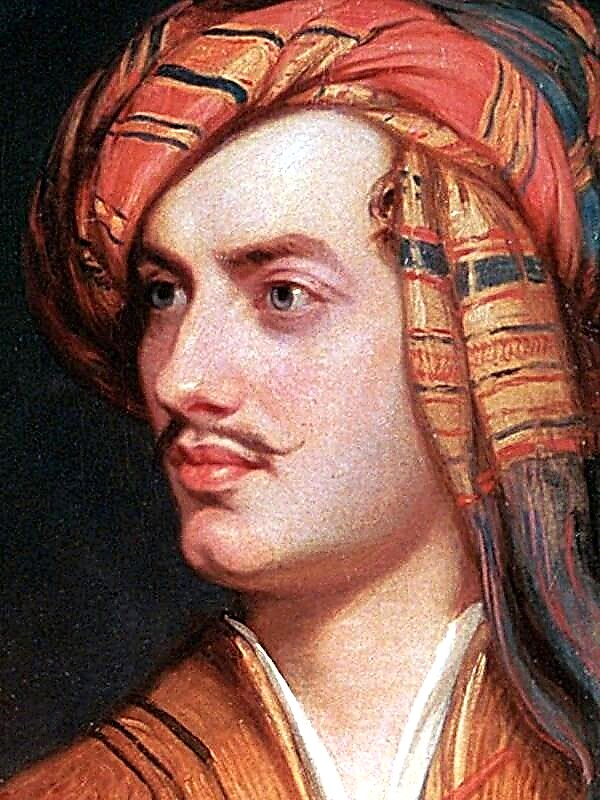
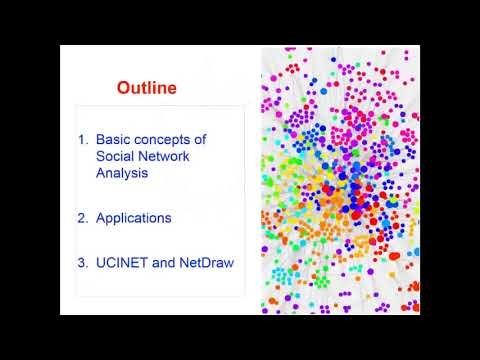 There is a leader in every
There is a leader in every